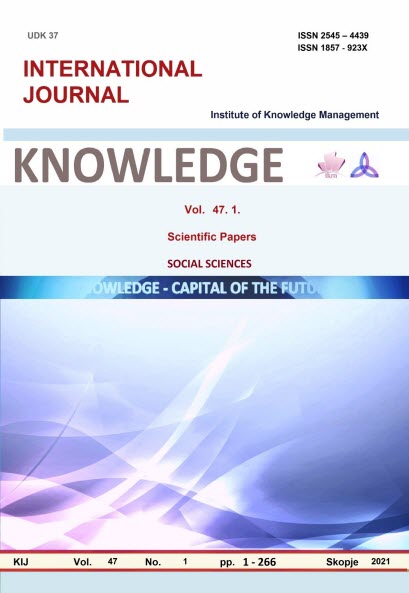PERSPECTIVE FROM THE WESTERN BALKANS AND STRENGTHENING THE NATO’S EASTERN FLANK
PERSPECTIVE FROM THE WESTERN BALKANS AND STRENGTHENING THE NATO’S EASTERN FLANK
Author(s): Tsvetan Tsvetkov, Anna-Maria Nikolaeva MarkovaSubject(s): Business Economy / Management
Published by: Scientific Institute of Management and Knowledge
Keywords: Western Balkans; NATO Eastern Flank; security challenges on the Balkans; NATO strategic concept; Black Sea
Summary/Abstract: A reflection process shall be launched to see if the NATO is ready to face the challenges of tomorrow. The main aim of this paper will be to outline what are the perspectives and challenges according to the Balkan countries and what is the role of NATO in the Eastern Flank. Collecting of views from the region will give some ideas and propositions how to make the Alliance stronger and more effective politically and militarily.The western Balkans is one of the longest lasting and largest investments that NATO has made throughout time. The Western Balkans is the most articulate because of the complexity of the region. As the WB is so articulate and complex and the relationships since the 1990s between NATO and the region of the WB have evolved. The three main pillars of the NATO strategic concept are deterrence and defence crisis management and cooperative security. Now we have two new NATO tools that are helping the region - capacity building to the civil military team (NATO advisory team which support the set up of security force in Kosovo) and enhanced interaction which is a basket of tailored activities (it is not a partnership because there are some of the Allies that do not the declaration of independence of Kosovo) that have been revised by the North Atlantic Council- building integrity and civil emergency planning. The common point between all the countries of the WB which have joined the partnership of peace is the contribution that they give to the security and stability of the region and to this idea of projecting stability. When NATO’s neighbours are stable the Alliance itself will be more stable. The open door policy a cornerstone of the Washington treaty– for many countries of the WB it is a cornerstone for becoming members and to assume the responsibilities and the obligations (and the willingness and ability to assume them) that come with this membership. Political dialogue and practical cooperation are crucial for the countries especially from the region of the Western Balkans to foster the regional understanding and to share common expertise. Speaking about the Geopolitics in the Balkans and in South Eastern Europe, my first point is about the current geopolitical dynamics. SE Europe and even The Balkans are not anymore in the centre of world politics in the role of the trouble maker in the region, like it was in the late 90s of the last and in the beginning of this century. But they continue to be a field for political manoeuvring of the geopolitical players dominated by the desire to confer spheres of interest and to mutually deter each other. We shall not forget that precisely democracy is the element that binds all members and the liberal economic principles are the cornerstone of this common identity. A more equitable burden sharing and ascending defense spending (2% or less currently) is an important benchmark for the future preparedness of the Alliance. The transatlantic relation was a point discussed largely in reflection process. A future goal for the Alliance shall be defining a mutually beneficial strategic and burden sharing equilibrium between North American and European members. An advance in the foreign and security policy objectives of Washington in Asia will be a good addition to this. What can be more is that NATO must continue to deepen and strengthen the already existing relationship. This mainly can be conducted through expanding its roster of partnerships, gaining actionable intelligence, strengthening early warning systems and improving crisis management to be nimbler politically and operationally.B9 Alliances members need to leave their operational comfort zones and look to further their contributions in zones of instability in Africa and Middle East that could spill over to Europe.
Journal: Knowledge - International Journal
- Issue Year: 47/2021
- Issue No: 1
- Page Range: 263-266
- Page Count: 4
- Language: English

